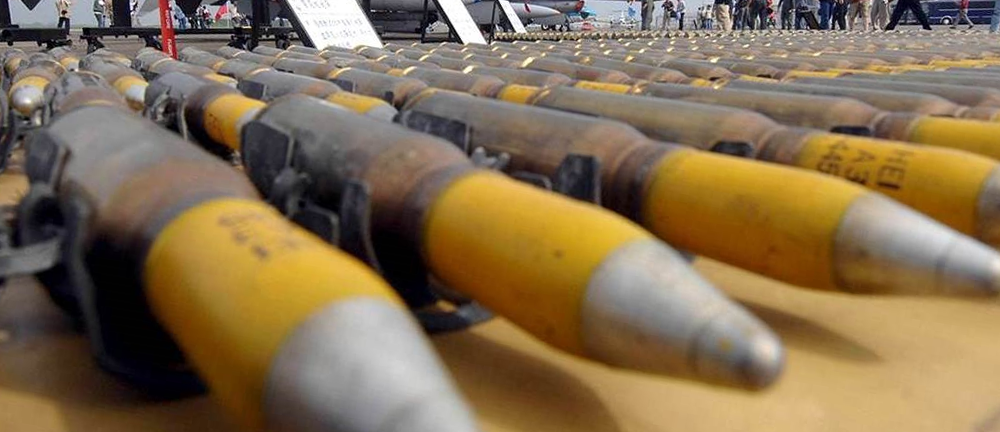In March 2015 a Saudi-led coalition of ten countries, backed by the United States, invaded Yemen, with the goal of restoring power to the government of President Hādī. This would be the start of a brutal war, which has been going on for the past seven years.
As a result of bombing campaigns by the Saudi coalition, as well as a Saudi blockade of borders and ports, the Yemeni people have suffered immensely.¹ The United Nations considers the situation the largest humanitarian crisis in the world,² with 80 per cent of the population (24 million people) in need of humanitarian aid.
Between 2015 and 2019 Saudi arms imports more than doubled compared with the previous five years.³ This has made the country the largest arms importer in the world, spending more than 9 per cent of its GDP on foreign arms.⁴ American and British arms dealers have been the driving force behind this increase, with 73 per cent of Saudi arms imports coming from the United States and a further 13 per cent from Britain. In contrast to other European countries that banned the sale of arms that might be used in Yemen, Britain has ignored strong public demands to restrict arms exports.
Saudi Arabia is by far Britain’s largest customer for weapons. British-produced weapons sold to the Saudi government include aircraft produced by BAE systems, which the British government has confirmed have been used in operations in Yemen.⁵ Amnesty International has also published evidence of British-made cluster bombs being used in Yemen. The British government at first denied but later confirmed this. Because unexploded sub-bombs can cause civilian harm long after a conflict has ended, cluster bombs are considered illegal according to international law; yet the British High Court declared in 2017 that the arms exports were lawful, arguing that civilian casualties would be unintentional.
Between 2015 and 2020 the United States has sold more than $64 billion worth of weapons to the Saudi government, with sales to other members of the coalition, such as the United Arab Emirates, also rising. Joe Biden when a candidate for the presidency of the United States promised the end of arms sales to the Saudis and the UAE but has since approved them. This includes a $500 million contract for attack helicopters, which have previously been used in the conflict.
In conflicts like these it is important to remember who benefits. Mass public opposition to arms sales is ignored in favour of profits. The clear winners are the arms manufacturers of the American and British capitalist class, with ordinary Yemeni civilians paying a massive price.
- United Nations Association, “Yemen crisis: Key facts” (https://tinyurl.com/5n834m5m).
- United Nations, “The United Nations in Yemen” (https://tinyurl.com/b7v6s43r).
- Brookings Institution (Washington), “It’s time to stop US arms sales to Saudi Arabia” (https://tinyurl.com/bdeu622c).
- Stockholm International Peace Research Institute, “The conflict in Yemen and EU’s arms export controls: Highlighting the flaws in the current regime” (https://tinyurl.com/bdbyb4fp).
- Campaign Against the Arms Trade, “UK arms used in Yemen” (https://tinyurl.com/mrxr2jap).






